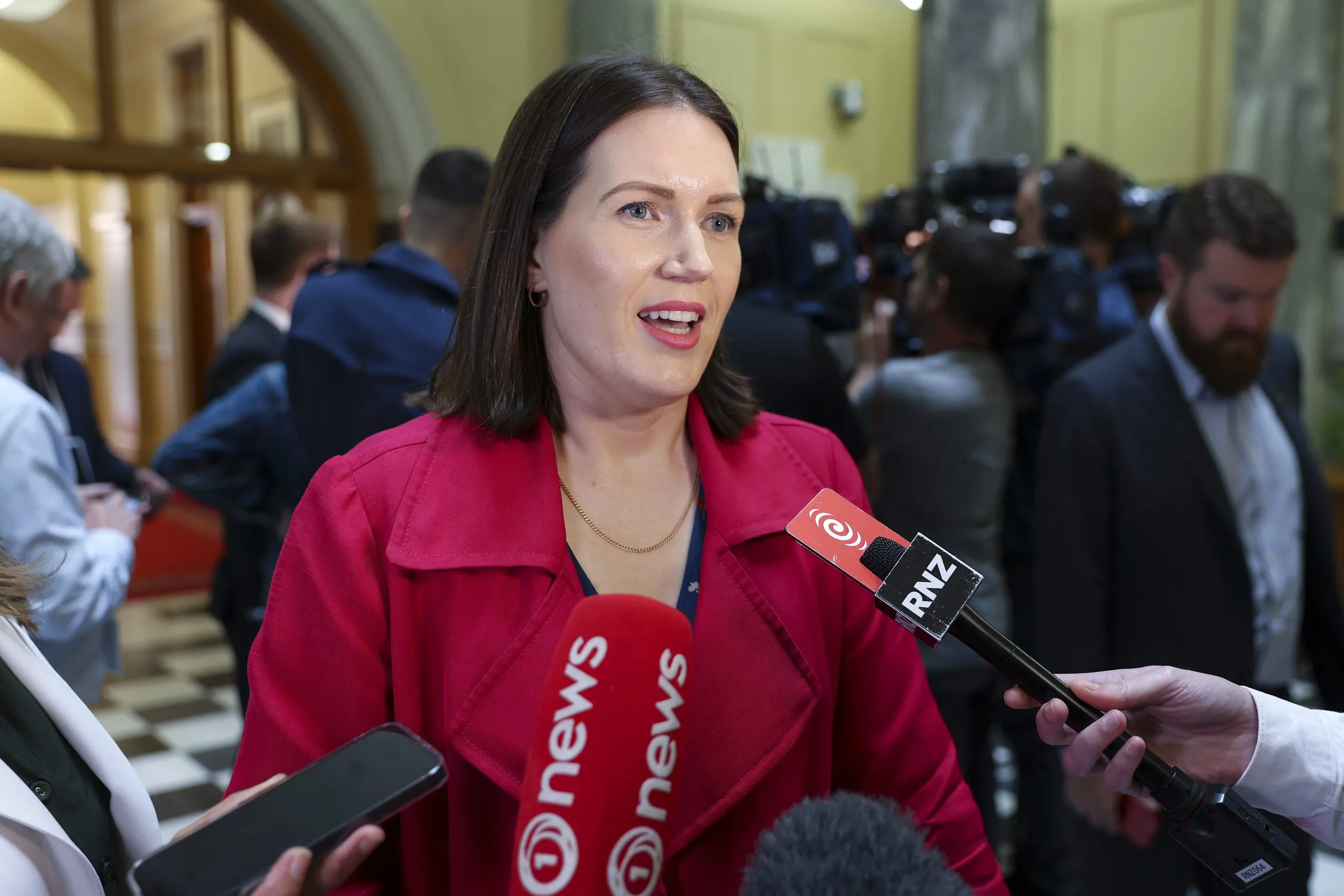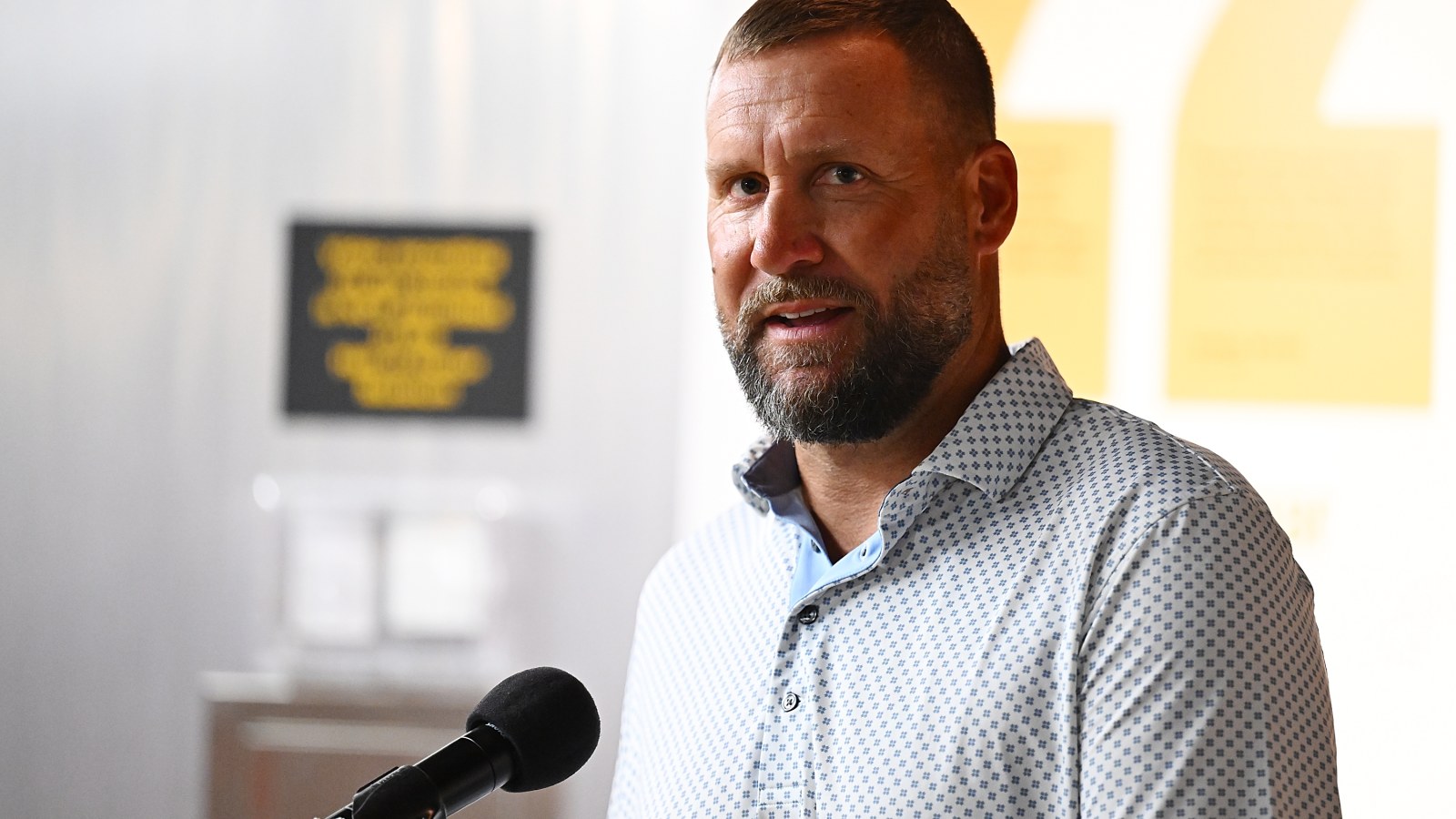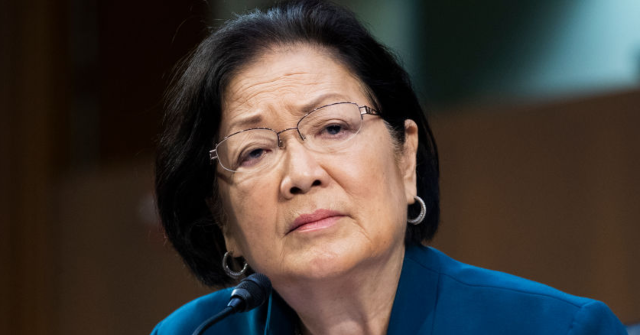By Tim Murphy
Copyright newsroom

For someone who dislikes pokies, has never bought a lotto ticket and finds debate about who gets to benefit from gambling “icky”, Internal Affairs Minister Brooke van Velden is stuck in an awkward political standoff.
She is advancing a coalition policy to regulate online gambling in this country, but her bill to create up to 15 licences does not make online operators share the proceeds with local charities, sports and community groups.
NZ organisations currently get $345m a year in grants from the owners of pokie machines. As the bill stands, they would get zero from the online industry while fearing the physical pokie industry will reduce in size and profits as gamblers increasingly move online.
They say money will disappear and clubs, competitions and community services would be imperiled, with, in some cases, fees to join teams facing rises upwards of $100 a year.
The Online Casino Gambling Bill is before Parliament’s Governance and Administration select committee and has received 5000 submissions – many against the omission of a requirement online gambling businesses should fund community activities.
Groups as diverse as Wellington Free Ambulance, Riding for the Disabled and a national coalition of sports groups have pleaded with MPs to change the bill to make the online sector also contribute a percentage of proceeds to the community.
Trusts that run pokies currently pay 40 percent to their communities under what is known as Class 4 distributions.
Van Velden is an Act minister pushing what was a National Party policy to control online gambling.
She has publicly held the Government’s line that there is no evidence that enabling legal online gambling would mean less money spent at pokies and therefore less for sports and other groups.
She told a group of her Tāmaki electorate constituents this month her officials at internal affairs had seen no need for the online bill to include a community funding requirement.
“I’ve been doing what I’ve been told to do more often, which is to listen to my officials. As a politician you can never be right. You are damned if you do and damned if you don’t.”
Van Velden expressed some puzzlement that a Cabinet decision made early last year to introduce the bill without community grants should provoke such an uprising of complaints so late in the piece. “It has now started to kick off as an area and I will be listening to the submissions that come through to the select committee.
“Some of the community groups now say if we do not allow some of the profits to go to the community from online gambling, they will lose funding. My officials say that’s not true.
“People who gamble on pokies are a different group of people to those who gamble online. Community groups think people will stop gambling on pokies and gamble online.
“It does seem slightly icky to suggest we are all bickering over the proceeds of gambling income and where it goes.”
She said: “I’m not a fan of pokies to be honest,” adding “we are not creating online gambling, it already exists”.
Her bill was “to create guardrails so people who do want to gamble online can get their money out … My part is to help those who have gambling addictions.”
“I did not get into regulating online gambling to make the community groups profit from it. It is a gnarly space. It’s a really interesting, difficult space.”
The minister repeated she was not a fan of gambling. “I’ve never bought a lotto ticket.”
If there was a “huge groundswell to say we want the gambling profit” then the Government would need to “listen, figure out what to do” and complete a balancing act.
The strength of the opposition van Velden and the coalition Government face has been clear in select committee hearings – often from people in regional areas and in sports and community sectors who might otherwise be assumed to offer political support.
Former NZ Cricket boss and 2011 Rugby World Cup organiser Martin Snedden is arguing for the NZ Community Sports Collective, representing 46 national sporting organisations and all 18 regional sports trusts.
The group speaks for 5000 sports clubs with 1.67 million members.
Its submission said: “We support the intent of the legislation to regulate an unregulated online casino gambling market.
“We oppose the catastrophic unintended consequences for community organisations from the Online Casino Gambling Bill’s stark omission of the ‘community benefit’ principle which has underpinned New Zealand’s gambling legislation over decades.”
Snedden told MPs that van Velden’s reference to those who receive pokies money as “dependents” was “pretty insulting”.
“I label these people ‘givers’,” he said.
Snedden tells Newsroom: “I felt the way she used it was she was basically treating people who are running community sport as almost beneficiaries, a prejudicial beneficiary reference, rather than acknowledging these people do a hell of a lot of good stuff and society is lucky to have them.”
His umbrella group says the money from gaming trusts to the community was “an incredibly positive money-go-round” going into regional economies.
Over the 50 years of gambling controls and legislation, a clear principle had been that community benefits should be recognised. It was unbelievable that that was being set aside in this bill.
Snedden told MPs the community “is not required to prove they deserve their right to the money”.
To van Velden and the Internal Affairs views that no evidence exists that online gambling would cut into physical gambling, Snedden cited Swedish examples and research from Sport NZ and the NZ Institute of Economic Research.
“NZIER has indicated that ‘applying the overseas examples (that NZIER looked at) to the New Zealand situation suggests funding to sport from Class 4 gaming trusts could be reduced by $43.3m after five years’.”
The Community Sports Collective added: “Following the passing of the Online Casino Gambling Act and the legalising of digital competitors to Class 4 slot machines, there is credible evidence that it will continue to impact at an increasing rate.
“Ultimately this will end grant funding going to community from the Class 4 Trusts or render it immaterial.”
His group said the only fair solution would be for the bill to adopt the principle of community benefit as part of its harm-minimisation package, and set a percentage of money that has to be extracted from international online operators as a cost of their social licence to operate in New Zealand.
Snedden said the current percentage under the Class 4 system would be a good place to start from.
To MPs’ questions of how online-generated monies could be distributed fairly, given pokies’ funds were largely spread around in their geographic location, Snedden said a solution based on the current Class 4 structure could be found.
“It has to be accessible at the front line. It cannot go into some distribution model where half of it gets eaten up in administration costs.”
MPs have already heard from 113 submitters in person or on video, with another four to five hours of hearings in Auckland next week.
Representatives of groups covering cancer, Māori communities, the disabled, tennis, arts, netball, BMX, dragon boating, theatre trusts, alpine skating and councils have presented – heartland voices from around the country.
Some submissions were blunt: Donna Kennedy of Riding for the Disabled said the charity relied on Class 4 funds to subsidise its operations for 3000 riders using 400 horses each year, helping young people gain strength and confidence.
“Cut Class 4 funding and you are not just cutting our income, you are cutting hope.”
Basketball NZ’s acting chief executive Belinda Edwards said the bill failed to uphold the fundamental principle of the country’s gambling framework – that gambling profits must support the community. “The bill gives online operators a free pass to benefit from New Zealanders but not give back.”
Her organisation received $9m a year. “This funding is not a luxury; it’s essential.” Basketball NZ urged MPs to act decisively, amend the bill and require mandatory community funding levies on online gambling operators.”
Waimea Old Boys’ Rugby Club from Nelson said it was no exaggeration to say if grant funding from Class 4 pokie money ended the club would be “non-existent within a few years”.
The Taranaki Cricket Association’s Ryan Evans said it would have to push increased costs onto users, which could see fees rise by $100 per player a year.
Karori Football said it was inevitable if the bill passed without amendment that online gambling would cannibalise revenues via pokies.
New Zealand Rugby’s chief executive Mark Robinson said more than 400 clubs received $27m in Class 4 grants last year.
“This bill … gives online gambling preferred status over Class 4 on which community organisations rely. We are deeply concerned about the impact this will have, not just on rugby but on sports more generally.
“Making online gambling firms pay 40 percent in the same way as pokies was not just equitable but essential.”
Martin Snedden tells Newsroom he’s hopeful the strong community voice provoked by the bill will have an impact with MPs and the principle of community benefit will be “accepted and infused into the final version of the legislation”.
The select committee has until November 17 to report the bill back to the House.



